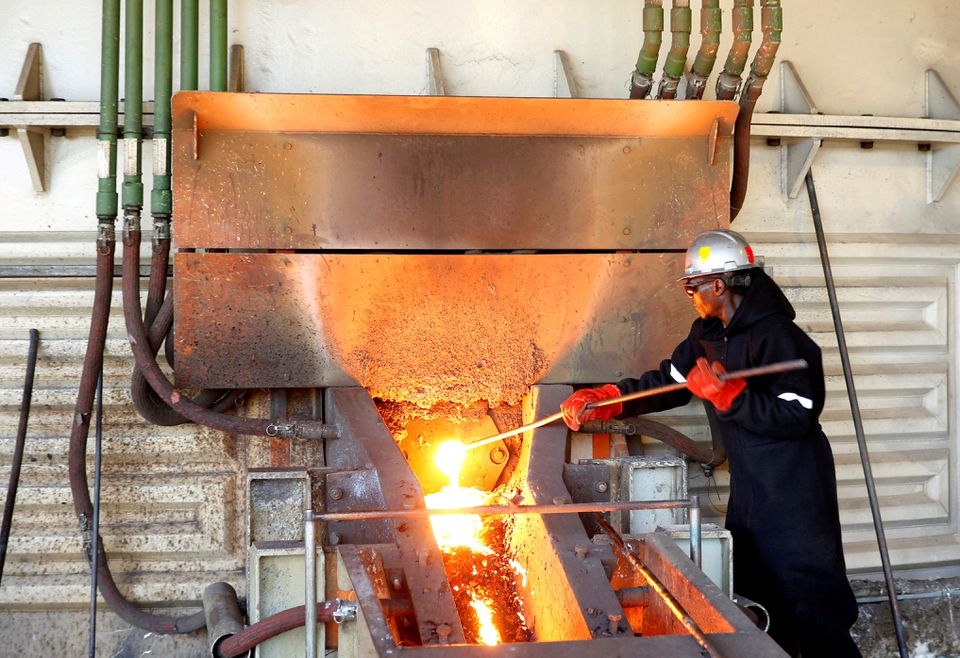- Palladium seen averaging $2,069/oz in Q4, $2,037.50/oz in 2023
- Platinum seen averaging $907/oz in Q4, $970/oz in 2023
- Individual forecasts ,
Nov 2 (Reuters) – Analysts and traders have downgraded their forecasts for platinum and palladium prices next year as a global economic slowdown reduces demand, according to a Reuters poll on Wednesday.
Both metals are used mainly in vehicle exhaust systems, where they neutralise harmful emissions, though platinum is also used in jewellery, other industry and for investment.
Prices of the two metals are largely unchanged from the start of the year, with platinum hovering around $950 an ounce and palladium around $1,900 an ounce.
Slowing economic growth piles extra pressure on an auto industry still dealing with a semiconductor chip that began in 2020 and has forced companies to cut vehicle production, reducing platinum and palladium demand.
The poll of 27 analysts and traders forecast little change for prices over the next year.
It returned median forecasts for platinum to average $907 an ounce in the last three months of this year, $932.50 in the first quarter of 2023 and $970 for the full 2023 year.
For palladium, it predicted average prices of $2,069 an ounce in the fourth quarter, $2,075 in the first quarter of next year and $2,037.50 an ounce for 2023 as a whole.
A similar poll three months ago predicted platinum would average $1,013 an ounce and palladium $2,060 an ounce in 2023.
Those analysts who forecast supply-demand balances said they expected the platinum market to be in surplus this year and next year and the palladium market to be balanced or in deficit.
“Platinum prices could receive a boost next year as investment demand improves a little and industrial demand picks up towards the end of the year. That said, any gains in the price might only be very limited,” said Capital Economics analyst Caroline Bain.
For palladium, she said “we wouldn’t expect a material rise in prices until prospects for global manufacturing brighten as the global economy emerges from recession.”











